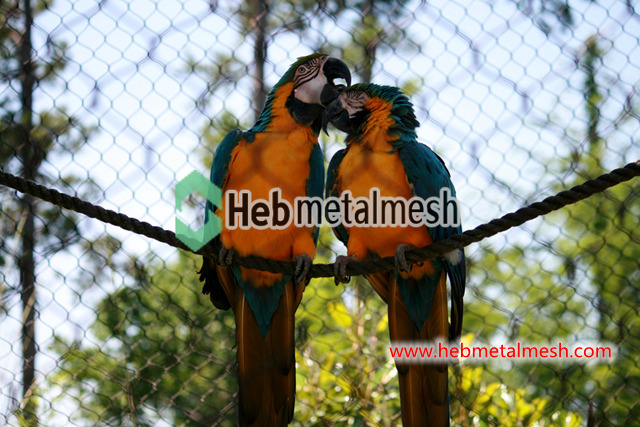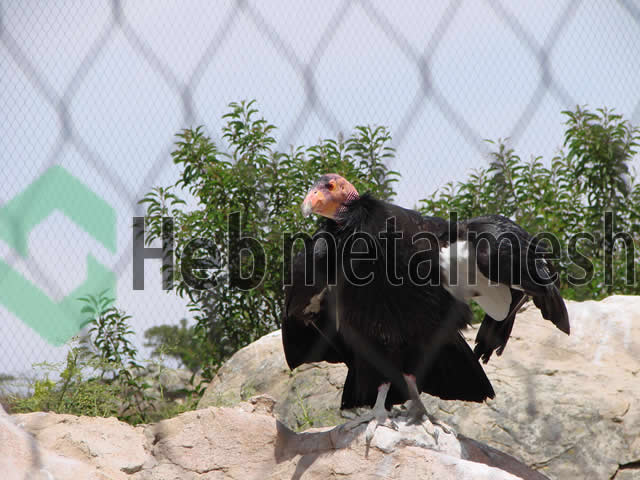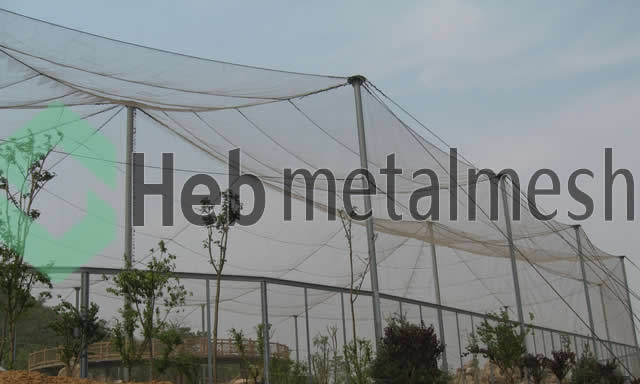Introduction to Macaws and Their Habitat Needs
✅Choose a best specification and size for your need.
✅Contact for your customized panel size and need.
Macaws are vibrant, large parrots known for their striking plumage and remarkable intelligence. These birds belong to the family Psittacidae and comprise several species, including the scarlet macaw, blue-and-yellow macaw, and green-winged macaw, each exhibiting unique color patterns and sizes. Native to Central and South America, macaws primarily inhabit tropical rainforests, savannas, and woodlands, where they find abundant food and nesting sites. In captivity, recreating their natural environment is essential for their well-being.
Due to their size, macaws require spacious enclosures that allow them to stretch their wings, climb, and explore. A suitable habitat mimics the structural complexity of their wild surroundings, providing various perches, toys, and enrichment activities. Social by nature, macaws thrive on interaction; thus, a well-designed enclosure should not only prioritize physical space but also facilitate social engagement, whether with other birds or their human caretakers. The social behavior of these parrots stems from their natural instincts to live in flocks, which highlights the importance of companionship and stimulation in a captive setting.
Moreover, macaws are highly intelligent creatures with problem-solving abilities and an innate curiosity. This intelligence necessitates an environment that encourages mental challenges, such as puzzle toys and foraging opportunities. When considering the ideal living conditions for macaws, safety is paramount. Opting for materials like stainless steel mesh is vital to prevent the macaws from escape while ensuring the durability of their enclosure. By understanding the unique habitat needs of macaws, pet owners can create a secure and enriching environment that promotes the health and happiness of these magnificent birds.
Why Choose Stainless Steel Mesh for Macaw Enclosures?
When selecting materials for a macaw enclosure, durability and safety are paramount considerations. Stainless steel mesh emerges as an excellent option for constructing macaw cages due to its numerous benefits. One of the primary advantages of using stainless steel is its remarkable resistance to rust and corrosion. Unlike other materials, such as galvanized steel or untreated wood, stainless steel maintains its structural integrity even in varying weather conditions, thereby ensuring the longevity of the enclosure. This quality is particularly essential for outdoor setups, which are frequently exposed to moisture and varying temperatures.
In addition to its impressive durability, stainless steel mesh offers enhanced safety for macaws. It is non-toxic and does not degrade over time, which minimizes the risk of harmful substances leaching into the bird’s environment. Macaws are known for their inquisitive nature; thus, using a material that can withstand their beaks and playful behavior is crucial. Stainless steel’s robust construction resists scratches and bites, ensuring that the enclosure is less prone to wear and tear compared to alternatives like wood or plastic. Moreover, its strength prevents any accidental escapism by the macaw, providing peace of mind to the owner.
Furthermore, installing stainless steel mesh allows for improved ventilation and visibility within the enclosure. These features are vital for a macaw’s well-being, as they thrive in environments that offer fresh air circulation and interaction with their surroundings. The aesthetic appeal of a stainless steel setup can not be overlooked either; it presents a clean and modern look that can blend seamlessly into any yard or home décor. Overall, stainless steel mesh is a superior choice for constructing safe, durable, and attractive enclosures for macaws, catering to both the needs of the bird and the preferences of the owner.
Types of Stainless Steel Mesh Suitable for Macaws
When selecting the appropriate stainless steel mesh for a macaw enclosure, it is essential to understand the various types available, including different grades and weave patterns. The choice of mesh not only affects the structural integrity of the enclosure but also its functionality, especially concerning visibility and ventilation.
Common grades of stainless steel, such as 304 and 316, are frequently used for bird enclosures. Grade 304 provides excellent rust and corrosion resistance, making it suitable for indoor or dry environments. However, for outdoor enclosures exposed to harsher weather and moisture, grade 316 is preferable due to its enhanced resistance to pitting and crevice corrosion. This distinction is crucial for maintaining a safe and durable habitat for macaws.
The weave pattern of the stainless steel mesh also plays a significant role in its overall performance. Woven mesh provides great strength and resistance against potential escapes, as its interlaced structure is harder for birds to manipulate. Alternatively, welded mesh may offer smoother surfaces, reducing the risk of injury to your macaw. However, it may not always provide the same level of strength as woven options, so care should be taken during selection.
Another key consideration is the size of the openings in the mesh. The mesh must be small enough to prevent macaws from squeezing through or getting their beaks caught. A recommended size is 1 inch by 1 inch or smaller, depending on the size of the particular macaw species. This ensures that the enclosure remains secure while allowing adequate airflow and visibility, thereby creating a safe and comfortable environment for these vibrant birds.
Factors to Consider When Buying Stainless Steel Mesh
When selecting stainless steel mesh for a macaw enclosure, several key factors must be taken into account to ensure a safe and comfortable environment for these vibrant birds. The first consideration is the thickness of the stainless steel material. Thicker mesh provides greater durability and resistance against wear and tear, essential for withstanding the natural behaviors and potential aggression of macaws. Thickness typically ranges from 16 to 10 gauge, with higher gauge numbers indicating thinner material. A gauge of 14 is often recommended for optimal balance between strength and weight.
Next, the size of the mesh holes plays a crucial role in the safety of macaws. The hole size must be small enough to prevent the birds from escaping or becoming stuck while still allowing for proper airflow and visibility. Generally, a hole size of around 1 inch or smaller is advisable, as it accommodates the size of most macaw species while ensuring they cannot pass through. This consideration also extends to preventing predators from accessing the enclosure, secure enough to protect the birds from potential threats.
Overall mesh dimensions are another critical aspect. The enclosure should be spacious enough for macaws to fly and maneuver freely, reflecting their natural habitat and promoting physical health. Therefore, purchasing enough mesh to cover the intended area is essential. The location of the enclosure, whether in a garden, home, zoo, or farm, also influences choices. For outdoor settings, stainless steel mesh with a corrosion-resistant finish is ideal to withstand harsh weather conditions. In contrast, indoor enclosures might prioritize aesthetic appearance alongside functionality. Each of these variables will help create an effective and secure environment suitable for macaws.
DIY Macaw Enclosure Ideas Using Stainless Steel Mesh
Creating a safe and enriching habitat for your macaw requires thoughtful planning and creativity. Stainless steel mesh is an ideal material for building enclosures, offering durability and visibility while ensuring safety for your feathered friend. Below are several innovative DIY enclosure ideas that cater to various environments and needs.
One popular design concept is the free-standing aviary. This structure can be built in your backyard or garden, allowing your macaw to enjoy the outdoors in a secure environment. To construct a free-standing aviary, start by selecting a flat area with enough space for the structure. Use stainless steel mesh to cover a sturdy frame made from weather-resistant wood or metal. Ensure that the dimensions of the aviary provide ample room for your macaw to fly and explore comfortably. Remember to include perches, toys, and plants inside the aviary, as these elements stimulate the macaw’s natural behaviors.
An alternative design is to create a garden setup, integrating the macaw enclosure into your existing garden landscape. By building the enclosure around existing trees or shrubs, you provide a more natural environment for your macaw. Use stainless steel mesh in conjunction with wooden posts or metal poles to maintain the enclosure’s stability while blending seamlessly into the surroundings. This design not only provides security but also allows your macaw to connect with nature, enhancing its overall well-being.
For those living on farms or larger properties, a spacious outdoor macaw installation can be an excellent option. Constructing a multi-chambered aviary using stainless steel mesh can accommodate multiple macaws while reducing potential conflicts. Incorporate separate sections for feeding, bathing, and resting, ensuring each area is designed with the macaw’s needs in mind. With careful planning and the right materials, creating a versatile and friendly habitat for your macaw is entirely achievable.
Maintaining and Caring for Your Stainless Steel Macaw Cage
Maintaining a stainless steel mesh enclosure for your macaw is vital for ensuring both the longevity of the cage and the well-being of your avian companion. The durability of stainless steel makes it an excellent choice for bird enclosures, but it still requires regular upkeep. To properly care for your macaw’s cage, one must establish a consistent cleaning routine and conduct regular inspections.
Cleaning the stainless steel mesh is a fundamental aspect of maintenance. It is recommended to clean the enclosure at least once a week to prevent the buildup of bird droppings, food remnants, and dust. Using a mild soap solution and a soft cloth will help to effectively remove these contaminants without damaging the mesh. For stubborn stains, a soft-bristle brush may be utilized; however, care must be taken to avoid scratching the surface. Following the cleaning process, it’s important to rinse the area thoroughly with water to remove any soap residues, which can be harmful if ingested by your macaw.
In addition to routine cleaning, regular checks for wear and tear are essential. Inspect the mesh for any signs of corrosion or loose connections, as these can compromise the safety of your macaw. Look out for sharp edges or areas where the mesh may have stretched, creating potential escape routes for your bird. If any damage is detected, timely repairs or replacements will ensure a secure environment for your macaw.
To keep the enclosure in optimal condition, avoid exposing it to harsh chemicals or abrasive materials during cleaning. Additionally, positioning the cage away from direct sunlight can help maintain the integrity of the materials, preventing premature deterioration. Incorporating these practices not only promotes a safe home for your macaw but also establishes a positive living environment conducive to their health and happiness.
Safety Features to Include in Your Macaw Cage Design
When designing an enclosure for macaws, incorporating essential safety features is crucial to ensure their well-being. These intelligent and curious birds require specific considerations to minimize risks associated with their environment. The first aspect to focus on is the choice of mesh, which should be of stainless steel due to its durability and resistance to corrosion. Opting for a mesh with smaller openings is vital; it prevents the macaw from escaping or getting caught, as their beaks are powerful enough to manipulate materials. A mesh size not larger than 1 inch is generally recommended for adult macaws.
Lock mechanisms represent another critical safety feature in any macaw enclosure. Birds are cunning escape artists, and a standard latch may not suffice. Invest in secure locking systems such as slide bolts or double-lock mechanisms to prevent unintended openings. Additionally, it is advisable to regularly check the integrity of locks and hinges, ensuring they remain functional and unwearied, so the safety of your macaw is never compromised.
Moreover, preventing potential hazards associated with the cage’s design is of utmost importance. Ensure that all surfaces are smooth, without sharp edges or points, which could injure your macaw while exploring. Avoid materials that may be toxic or harmful, such as untreated wood or certain types of plastics. Furthermore, consider the positioning of the cage to avoid exposure to direct sunlight for prolonged periods, which can lead to overheating. It is also vital to ensure that any toys or perch materials included in the enclosure are safe for your macaw, as ingestion of harmful components can pose severe health risks.
Ensuring the right safety features in your macaw enclosure is fundamental not only for their security but also for their peace of mind, enabling them to thrive in a safe and stimulating environment.
Where to Buy Quality Stainless Steel Mesh
When selecting stainless steel mesh for your macaw enclosure, the sourcing of materials plays a crucial role in ensuring both the safety of your avian companion and the durability of the construction. There are several credible suppliers and manufacturers known for their commitment to quality, providing stainless steel mesh that is specifically suited for macaw cages. It is essential to distinguish these reputable vendors from potential substandard options available in the market.
One of the most recommended sources for quality stainless steel mesh is specialized avian retailers. These suppliers not only offer products designed for the unique needs of birds but also provide insights regarding the specifications required for macaw enclosures. Retailers with a strong reputation in the pet industry often ensure that their products undergo rigorous testing for safety and durability.
In addition to avian retailers, there are also manufacturers specializing in mesh production who cater to commercial markets. Companies that focus on producing high-quality stainless steel mesh for various applications, including industrial usage, are typically equipped to provide materials that meet the structural requirements of macaw cages. Their extensive knowledge in material selection often results in robust and reliable mesh products suitable for home and aviaries.
Online platforms, such as well-known e-commerce sites and specialty websites, provide a convenient avenue for exploring options, comparing prices, and accessing customer reviews. However, it is vital to verify the seller’s credibility and product ratings to avoid purchasing inferior materials that could jeopardize your macaw’s safety.
Ultimately, sourcing from trusted suppliers ensures that the stainless steel mesh you use for your macaw enclosure will have the longevity and strength needed to protect your feathered friend while providing a secure and safe environment. By opting for high-quality materials, you invest in both your macaw’s well-being and the enclosure’s durability.
Conclusion
In this guide, we have explored the importance of selecting the appropriate stainless steel mesh for macaw enclosures. The longevity, safety, and overall well-being of your macaw can be significantly impacted by the quality of materials used in their living space. Stainless steel mesh offers durability and resistance against the elements, making it an ideal choice for ensuring a safe and comfortable environment for these vibrant birds.
We discussed several key factors to consider when choosing the right mesh, including the gauge of the steel, the size of the openings, and the overall design of the enclosure. Each of these elements plays a critical role in the safety of your macaw, preventing any escape attempts or unwanted intrusions from other animals. By prioritizing these features, you can create a secured habitat that allows your macaw to thrive.
Moreover, investing in quality materials means less hassle in the long run, as high-quality stainless steel mesh is less prone to corrosion, rust, and damage. This is particularly important for macaws, which are known for their strong beaks and energetic behavior. Ensuring that their enclosure can withstand their playful nature will contribute to their overall happiness.
Ultimately, the well-being of your macaw is closely tied to the choices you make regarding their habitat. By choosing the right stainless steel mesh, you are not only providing safety but also creating a stimulating environment for your feathered friend. Proper investment reflects a commitment to their happiness and health, reinforcing that the right material can indeed make a profound difference in their lives.


